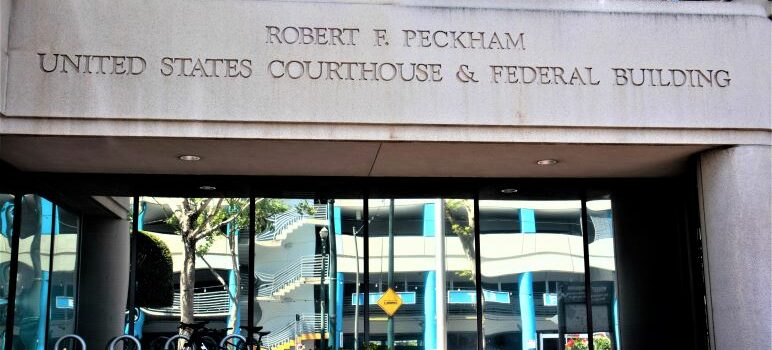A federal jury in San Jose Thursday found Ramesh “Sunny” Balwani guilty of two counts of conspiracy and 10 counts of wire fraud in a multi-million-dollar scheme to defraud investors and patients in connection with the operations of Theranos, Inc.
The verdicts follow a trial that began March 9, before U.S .District Court Edward J. Davila, and concluded just over six months after a jury found Elizabeth A. Holmes guilty of one count of conspiracy and three counts of wire fraud in related proceedings.
“Six months after the guilty verdicts in the Elizabeth Holmes trial, this jury has concluded that Holmes’s business partner, Ramesh Balwani, also bears responsibility for defrauding investors in Theranos,” said U.S. Attorney Stephanie Hinds. "The jury concluded that Balwani also perpetrated fraud on unsuspecting patients.”
‘I want to thank the jury for dutifully navigating through the complex issues presented by this case,” Hinds said in a statement. “In this trial, it took four months for the parties to present their evidence and argument, all the while wading through the additional challenges presented by the Coronavirus pandemic.”
“Once again, a jury has determined that the fraud at Theranos reached the level of a criminal conspiracy," said FBI Special Agent in Charge Sean Ragan. "The FBI has spent years investigating this investment fraud scheme with our partners at USPIS and the FDA Office of Criminal Investigations. Lies, deceit, and criminal actions cannot replace innovation and success.”
“Medical product fraud jeopardizes patient health,” said FDA Assistant Commissioner for Criminal Investigations Catherine A Hermsen. “This defendant joins his partner in being found guilty of fraud related to diagnostic tests. The FDA will vigilantly investigate and bring to justice individuals and companies responsible for putting the public health at risk.”
Balwani, 57, of Atherton, was employed at Theranos from September 2009 through July 2016. The blood testing company based in Palo Alto and Newark, Calif., was founded by Holmes, 38, of Woodside, Calif., in 2003. While employed with Theranos, Balwani worked for the company in several capacities, including as a member of the company’s board of directors, as its president, and as its chief operating officer.
At the trial, the government submitted evidence that while at Theranos Balwani conspired to commit wire fraud against investors between 2010 and 2015, conspired to commit wire fraud between 2013 and 2016 against patients who paid for Theranos’ blood testing services and committed wire fraud against investors and patients.
With respect to the conspiracy charges, the government submitted evidence regarding Balwani’s claims that Theranos developed a revolutionary and proprietary analyzer that the defendants referred to by various names, including as the TSPU, Edison, or minilab.
Balwani and Holmes claimed the analyzer was able to perform a full range of clinical tests using small blood samples drawn from a finger stick. They also represented that the analyzer could produce results that were more accurate and reliable than those yielded by conventional methods—all at a faster speed than previously possible.
Prosecutors demonstrated that Holmes and Balwani knew that many of their representations about the analyzer were false, but nevertheless conspired to convince potential investors and patients that the claims were true. For example, Holmes, Balwani, and others knew that the analyzer had accuracy and reliability problems, performed a limited number of tests, was slower than some competing devices, and, in some respects, could not compete with existing, more conventional machines.
Similarly, with respect to the substantive fraud charges, the evidence demonstrated Balwani used advertisements and solicitations to encourage and induce patients to use Theranos’s blood testing laboratory services, even though he knew Theranos was not capable of consistently producing accurate and reliable results for certain blood tests.
Evidence showed that Balwani represented to investors that Theranos would generate over $100 million in revenues and break even in 2014 and that Theranos expected to generate approximately $1 billion in revenues in 2015. In truth, Theranos resorted to using conventional machines bought from third parties to perform much of Theranos’s blood testing and Balwani knew Theranos would generate only negligible or modest revenues in 2014 and 2015. The trial evidence included numerous misrepresentations made by Balwani to potential investors about Theranos’s financial condition and its future prospects. In addition, the evidence showed that Balwani represented to investors that Theranos would dramatically increase the number of Wellness Centers within Walgreens stores even though Theranos’s retail Walgreens rollout had stalled because of several issues.
Like Holmes, Balwani was charged with conspiring to commit wire fraud against investors in Theranos during the period 2010 to 2015, conspiring to commit wire fraud against patients who paid for Theranos’ blood testing services during the period 2013 to 2016, and ten counts of wire fraud in violation of Section 1343 of Title 18 of the United States Code. Six of the wire fraud counts involved fraud against investors in Theranos while the remaining four involved wire fraud against patients who paid for Theranos’ blood testing services and advertising purchased by Theranos to attract those patients.
Balwani remains free on bond pending further hearings. Judge Davila scheduled Balwani’s sentencing hearing for Nov. 15. Balwani faces a maximum sentence of 20 years in prison, and a fine of $250,000, plus restitution, for each count of conspiracy and each count of wire fraud. elines and the federal statute governing the imposition of a sentence, 18 U.S.C. § 3553.
In a separate trial, a separate jury convicted Holmes in January of the investor-related conspiracy count and three counts of wire fraud. That jury acquitted Holmes of the patient-related conspiracy wire fraud count and three additional wire fraud counts; in addition, one count of wire fraud relating to a Theranos patient was dismissed during Holmes’s trial. The jury could not reach a unanimous verdict in her trial with respect to three investor fraud-related counts. Judge Davila scheduled Holmes’s sentencing for Sept. 26.

